Arshad Jalal is a Pakistani early-career scientist with a passion for plant growth and well-being that he developed as a teenager within his family. In 2022, supported by a CNPq-TWAS fellowship, he earned his PhD from São Paulo State University (UNESP), where he worked under the supervision of soil scientist Marcelo Carvalho Minhoto Teixeira Filho.
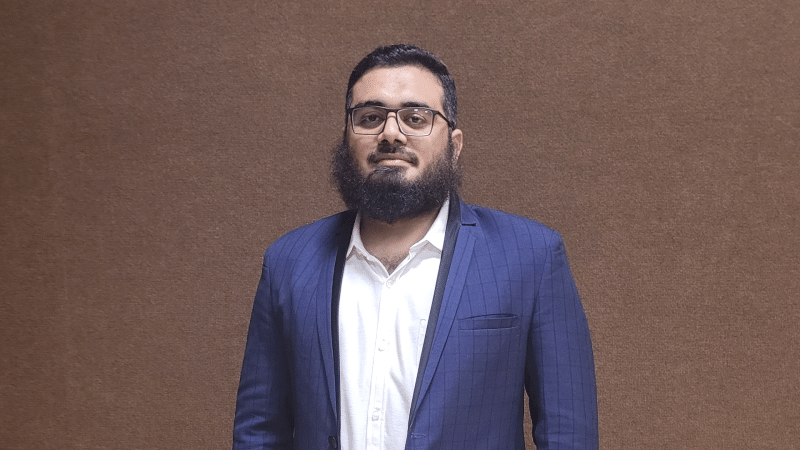
Jalal's thesis delved into the potential of biofortification, a technique aimed at enhancing plant health by introducing zinc and specific growth-promoting bacteria.
Recognizing its academic significance, the scientific open-access journal Plants honoured him as one of the three winners of the 2022 Best PhD Thesis Award. Each awardee received a cash prize, a certificate, and the chance to publish a paper free of charge after peer-review in Plants, before 31 December 2023.
"I am honoured by this recognition, and grateful to TWAS and CNPq, the Brazilian National Council for Scientific and Technological Development for supporting my education, allowing me to take a quality leap in my career," Jalal said. "When I applied for a PhD fellowship, I sent several applications. I got accepted by three international institutes, but I opted for CNPq-UNESP because it is the most prestigious and globally recognized. I anticipated the choice’s value, and this result proves I was right."
The CNPq-TWAS programme promoted training and excellence for sustainable development in the countries of the Southern hemisphere, through annual calls for doctorate and postdoctorate scholarships in Brazil. Over nearly two decades, 368 fellowship holders from 32 countries benefitted from the programme.
Food biofortification
"I developed an interest in plant growth, plant physiology, and plant nutrition when I started growing vegetables with my family," he recalled. He realized quite soon that malnutrition is becoming an increasingly severe problem worldwide. Therefore, he focused on potential solutions to tackle the problem, reasoning also on the impact of the chemical substances used to grow better crops.
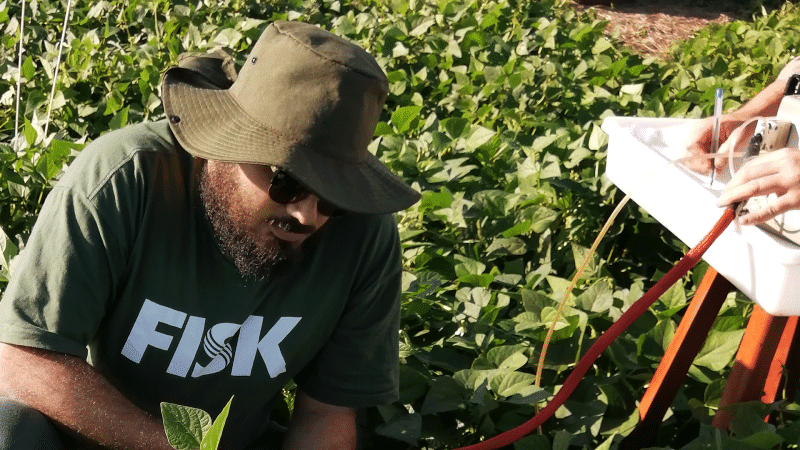
His passion turned into a life-commitment, prompting Jalal to earn his MSc from The University of Agriculture, Peshawar, first, and then a PhD from UNESP, both in agronomy. In his PhD thesis, Jalal noted that the intensive cropping for high yields, intended to feed a growing population, has harmed sustainability and nutrition due to imbalanced chemical fertilizer use. That's why there is an urgent need to understand soil micronutrient deficiency and its impact on crop nutrition and productivity.
Today, more than 2 billion people worldwide suffer from hidden hunger, a health condition triggered by the lack of food micronutrients. Micronutrients are vitamins and minerals needed by the body in very small amounts, and their lack may cause cognitive deficiency, stunting, and anaemia, leading to death.
Biological fortification, or biofortification, is a cost-effective breeding strategy that aims to enrich cereals and legumes with essential vitamins and minerals. Its final purpose is to grant an affordable and healthy diet to malnourished people.
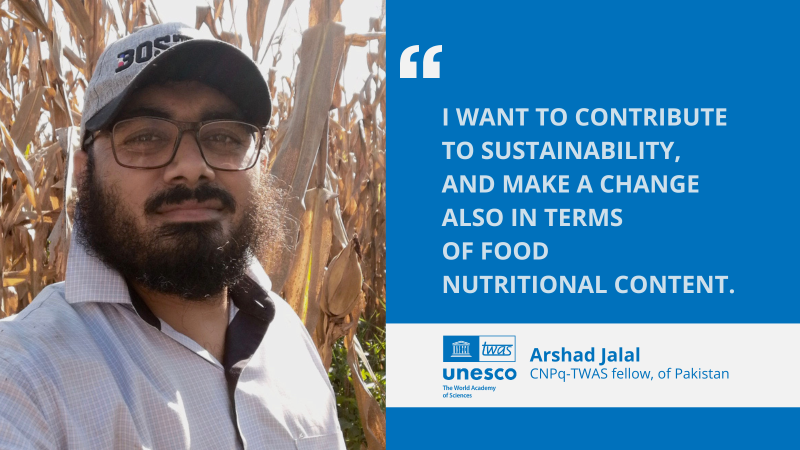
"I decided that I want to contribute to sustainability, and make a change also in terms of food nutritional content. However, I realized that if we keep on using huge amounts of chemicals, nothing would ever change," he said. So the question was: How may we obtain wealthier crops with less toxic add-ons?
He developed his PhD project testing several combinations of plant growth-promoting bacterial strains, and chemical fertilizers in increasingly reduced amounts. Plant growth-promoting bacteria offer a potentially sustainable and safe approach to enhance nutrient uptake in edible tissues, addressing zinc malnutrition and hidden hunger in human beings.
As test crops, he selected wheat, maize, and common beans, because these are some of the leading crops worldwide.
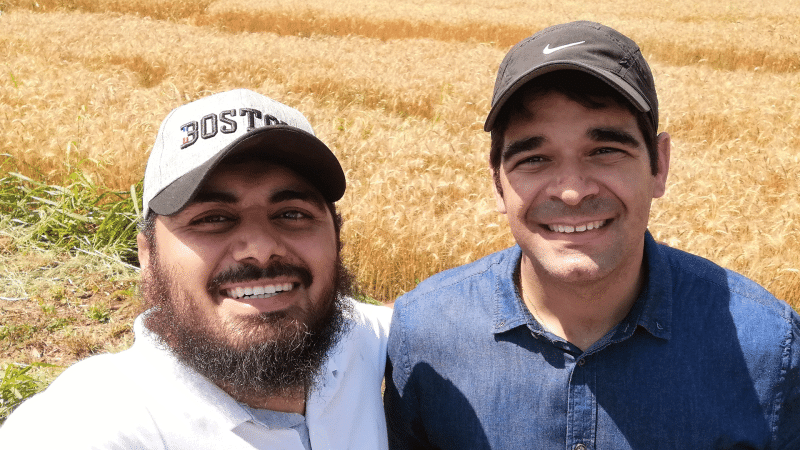
"Eventually, I found a good balance between the administration of zinc (zinc sulphate and zinc oxide) and bacteria that increases the level of zinc in the edible parts," Jalal said. Zinc is a vital element for plants. It promotes plant growth, development, and yield, and plays a pivotal role as a regulatory component of many proteins and enzymes. Zinc and bacteria were both added to the soil, and also through foliar spread in another set of experiments, resulting in increased growth and nutritional status of crops.
This form of biofortification, Jalal explained, serves both the plant that grows better, and humans who eat the plant. "I found that bacteria have multiple properties. For example, they reduce the toxic substances in arugula and lettuce, and improve growth, yield and food quality of plants."
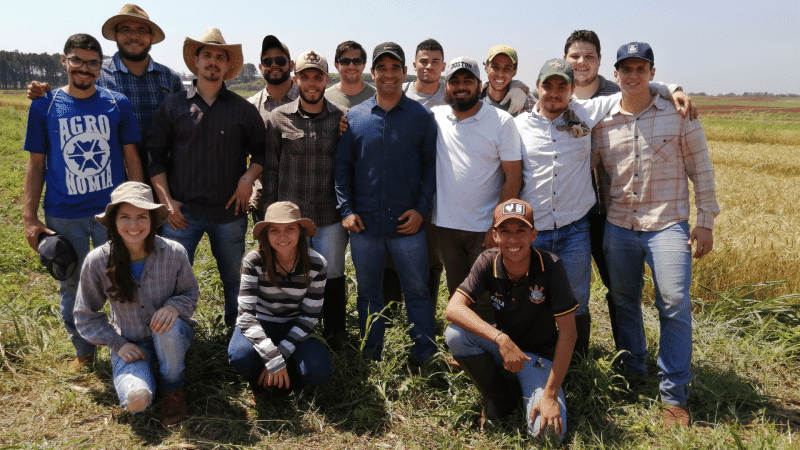
During the four years he spent in Brazil—from March 2019 to December 2022—working on his PhD, Jalal published more than 50 scientific articles and seven book chapters. In addition, he attended three international, and several national conferences that allowed him to establish promising scientific contacts.
Now Jalal is going to spend his postdoctoral term in Saudi Arabia, at the King Abdullah Science and Technology University, in the BioActives Lab, Center for Desert Agriculture, Division of Biological and Environmental Sciences. But Saudi Arabia is just another step in his scientific journey. "I plan to go back to Pakistan, if I find a position, to serve my country," he said.
Cristina Serra

